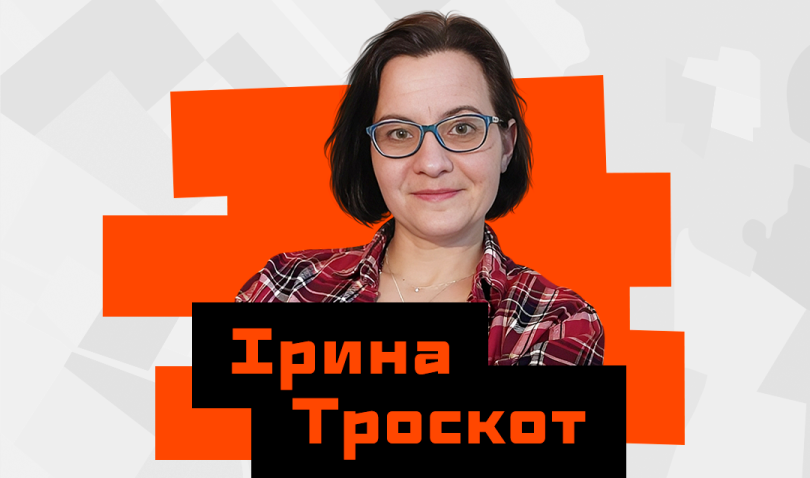A sense of home, or a lost vision of the future
I left my home in Irpin with a half-empty city backpack in the empty trunk. I was leaving Ukraine with just my carry-on luggage, believing that I would return to the Kyiv region in about a week. I convinced myself that I was only crossing the border for a month because I was just going „to visit a friend.“
The war has compelled many of us to relocate, and its impact will be felt long after our victory. This is particularly significant when we consider how crucial our personal spaces are to us; the stories about Ukrainians who have historically planted their „cherry orchards,“ whitewashed their houses, and erected fences have a profound basis.
Many of us have suffered the most terrible losses that war can bring, those that cannot be compensated for or returned. Therefore, it may seem inappropriate to talk about seemingly less obvious losses now, but they are also important for their consequences. And first and foremost, I am talking about the loss of our own safe space that we call home.
All of us, whether we left Ukraine or stayed, have been completely robbed of that basic feeling of „home.“ Here, where I am now, 1600 kilometers from the border with Ukraine, I see mostly people who experienced only the first days of the war last year and who now live in the Netherlands, a very comfortable country in every sense of the word. They have food and a roof over their heads, they have adapted relatively easily, work, communicate, and so on. But for some reason, a woman next to me unexpectedly burst into tears, seeing a plane in the sky again.
Because safety is too fragile a feeling. People have been working on it for thousands of years, but it can still be shattered after the first threat. For us modern people, the fullest sense of security is in the mountaineering connection with the feeling of our own space.
Like many Ukrainians, I also know what it’s like to lose a home: in March 2022, a Russian rocket landed on my house in Irpin. Later, after the liberation of Irpin, I watched from a distance as the rain gradually destroyed my house: my five-story building is still completely without a roof. So at first, water dripped from the modern chandelier I had bought just the day before the invasion, and after a while the wallpaper began to peel off – first gradually, slowly, then in large pieces. Someone tried to save the floor and covered it with glue, but it still didn’t help the laminate, which quickly swelled. The safe world, defined by several brick walls, which I populated with cute little things and which I wanted to return to after all my travels, was destroyed. I actually got lucky that I left it earlier with a half-empty city backpack, although at the time I had no idea that I would never return there again. That I would only see on photos how its physical dimension gradually crumbles.
Since then, I have moved to countless houses and rooms. But, of course, none of them was a home and could not become one. Although I tried: I found friends, explored and marked the surrounding space with small associations, bought plants and furniture – everything to „settle down.“ However, I still couldn’t find any solid ground under my feet. Because a home takes strong root in a stable sense of security. And only then, if we speak about the non-traumatic flow of life, thoughts about tomorrow begin to sprout. That’s how a person acquires the foundation on which they can live and create, thinking not only about the immediate day but also about a thoughtful perspective. That’s why when I think about the loss of home, I also mean the loss of a clear vision of a peaceful future.
And this becomes evident from a distance. „What are your plans?“ is the most commonly-asked question I hear in the Netherlands and it always confuses me. Because this mundane phrase, almost equivalent to the thrown-in passing „How are you?“, vividly illustrates the gap between them and us. We Ukrainians are deprived of such luxury – to plan. Instead of plans, we have only hopes and expectations. That our loved ones will stay alive, that our home will remain untouched, that our world will hold up. That soon, the time will come to return to the ruins of our lost security.
Collective Europe still doesn’t know how to deal with us, those who don’t sail in broken boats across seas to reach the coveted West. We don’t destroy documents, invent stories about ourselves, or dream of staying there at any cost. We don’t seek rapid integration, yet we take care to make our temporary, but „homey“ place comfortable. This is something that representatives of other nations seeking refuge in the Netherlands often do not do. They, like the Dutch, have plans for the future.
And we are now like ghosts, scattered around the world, without a sense of security, without a home, without a vision of the future. And when I think about the beginning of the great war, my first association in memory is not Russian helicopters, which I watched from my balcony, or artillery fire over my car heading towards Kyiv, as I turned off the Kyiv-Zhytomyr highway near Brusyliv. Before my eyes is a half-empty city backpack that I throw into the trunk. Because what can you put in it if it cannot contain your future?
Translated by Yulia Lyubka and Kate Tsurkan











